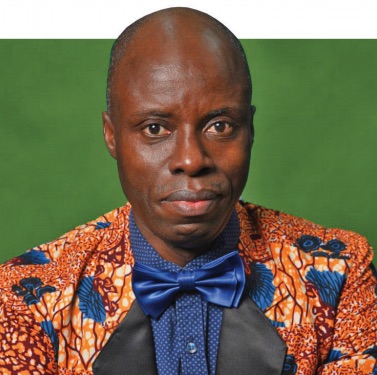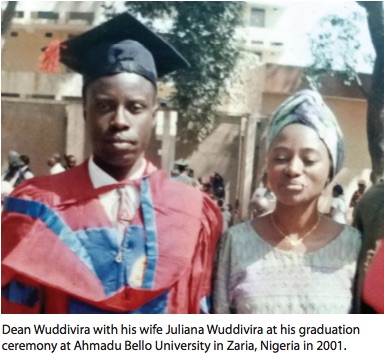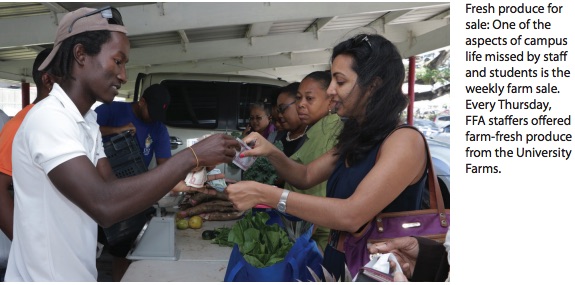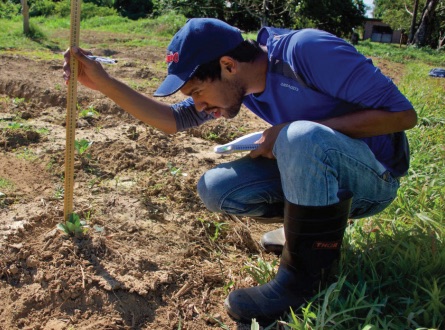Dr Mark Wuddivira, FFA’s new Dean, shares his journey from Nigeria to St Augustine, his views on reenergising Caribbean agriculture and his vision for the faculty

The UWI welcomed Mark Wuddivira, PhD as its new Dean of the Faculty of Food and Agriculture on August 1. He has been a faculty member at the St Augustine Campus since 2009, where he has taught graduate courses and completed research projects on agricultural and environmental soil physics, among others.
A Nigerian by birth, Dean Wuddivira has had an extraordinary journey to date. “I always tell my children that if I should just take them to where I started my life, they would never believe it... I don’t imagine anybody would look at that humblest of backgrounds and think that anything would come out of it.”
His surname originates from “one of the very minority, micro-minute tribes” and means ‘close the gate’. His grandmother, having suffered several stillbirths, had declared “the gate of loss and of death was closed” when she gave birth to his father.
“It amazes me where I am today, because all the conditions were not favourable for anybody to progress in life.” Peasant agriculture was the only way of life in his village where survival hinged upon subsistence farming and “whatever little excess could be sold”. “I grew up seeing farm produce being used in exchange for other things, because the money was not readily available.” These were luxuries such as “soap for bathing and other things that people take for granted”.
Dean Wuddivira retraced the arrival at his current role along a string of fortuitous events, including one where a coveted and costly school application form came to him by chance. His father, a rural village school headmaster, who had received some Western education, was at once the village teacher, doctor and nurse, and was “one of the first people in that community who would have gone to school”.

Forgoing other options, a desire to change things in his own society propelled Wuddivira towards a four-year Bachelor’s programme in Agriculture at Ahmadu Bello University, Zaria, Nigeria, where he viewed anything difficult as something to be vigorously pursued. Some time after graduating, Ahmadu Bello called Wuddivira to fill a vacancy for assistant lecturer in Soil Physics – a solid achievement, pre-empting his Master’s degree.
In 2002, while on scholarship to read for a PhD in Irrigation Engineering at a university in China, he was offered a scholarship to study Soil Physics – his true calling – at a yet unheard of The University of the West Indies in an unknown Trinidad and Tobago. “When you are talking about taking a scholarship from Nigeria, you are talking about thousands of people coming out for just a few scholarship opportunities,” he said of the magnitude of the opportunity. Wuddivira, who considers his circumstances divinely appointed, praised The UWI’s gracious accommodation of him and his family since their arrival 19 years ago.
Dean Wuddivira has witnessed the ongoing challenges at the FFA and hopes to remedy these with a refocused vision. He sees the past merging and demerging of the Faculty of Agriculture as injurious and resulting from political and cultural disdain for the sector. “I’m seeing a faculty that needs identity, whose institutional profile needs to be enhanced and that needs to position itself to become a first-choice faculty.”
Dean Wuddivira wants to shatter the misconception that agriculture is a low-tech field where food production is the endgame, which is but one aspect of “the whole gamut of the food system, the agri-food/environment spectrum”. In reality, a profession in agriculture demands technical proficiency.

His expression changed as he weighed the importance of The UWI’s role in agriculture for the entire region. “As the premier institution that has the mandate of agriculture, not just in Trinidad and Tobago, but in the region”, young people need to be convinced that “agriculture is not just going out into the field”. They think that “you don’t need any deep science, you don’t need any innovative work to do agriculture, but that’s not true,” he said pointedly, repositioning himself on the edge of his chair. “We have to demonstrate that we can innovate and develop technologies in agriculture that will attract young people, that the potential to do groundbreaking research is right here.”
As for climbing food prices, he said, “Any country that depends on imported, low-quality food will only encourage an unhealthy population and increase the burden of our health sector,” he said, stating that Trinidad and Tobago’s existing US$5.7 billion food import bill was “unsustainable and unacceptable”.
Dean Wuddivira contextualised the paradox of people’s desire for good health but continued consumption of low-quality foods. He suggested that if the national budget were to be cut for emergency reasons, food quality would be first to the chopping block. “We forget that we must eat...there is nothing that is as healthy as what grows naturally in your native environment.” He especially mentioned this in light of the deleterious nature of comorbidities in treating Covid-19 patients. “Non-communicable diseases are all related to what we eat.”
Dean Wuddivira intends on leveraging the pandemic towards his vision and said that in the pursuit of good health, people were awakening to the importance of agriculture, as is evidenced by the mushrooming of agribusiness startups. The role of the FFA is to organise these entrepreneurial opportunities. “We want to ensure that there’s an environment for them to continue to thrive.”

The FFA is also leveraging future in-house lab facilities and services to be provided by trained experts for clients such as farmers, land managers, environmental agencies, GOs and NGOs. These agro-environmental services will include soil and water quality testing, plant health, diagnoses, and feed formulation for livestock.
“The development of people is important, because if you have happy people around you, then there’s nothing you cannot achieve,” said Dean Wuddivira. He sees his personal values of integrity, honesty, spiritual focus and respect for others as the cornerstones of his professional success. “Anything that has to do with making the lives of other people better, anything that will make me interact with other people, excites me.”